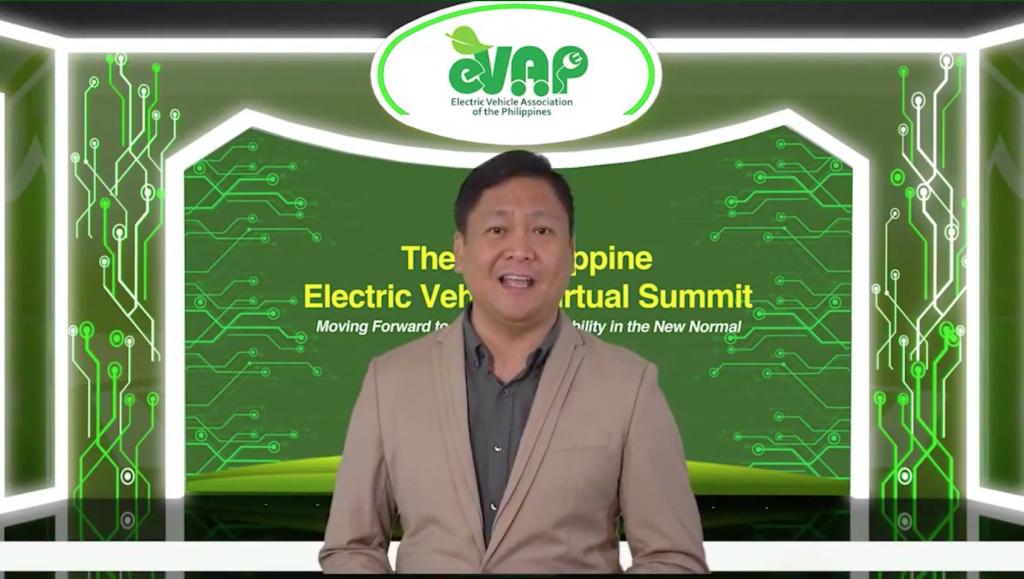Having covered the yearly Philippine Electric Vehicle Summit (PEVS) for some time now, I’ve seen how its convenor, the Electric Vehicle Association of the Philippines, has steadily evolved the event and its discussions to mirror the country’s continuing journey to electrification.
Granted there are issues that remain undeniably salient (i.e., unresolved) throughout the years – such as the need for government support/fiscal relief, the lack of charging infrastructure, and addressing the issue of pricing. But I’ve certainly seen how the local industry has flourished as more people and entities (such as LGUs) have been opening up to the idea of electrified mobility. Even the national government is seeing the potential of EVs as an economic stimulus.
What’s bittersweet this year is that even as the EVAP turns 10, the PEVS was not held in its old haunt at the Meralco compound in Pasig City because, well, it’s 2020. EVAP, which “envisions a nation wherein the use of electric vehicles is highly promoted, encouraged and supported by its government and the society in order to develop a transportation landscape that is one with the environment ecologically and economically,” had to shift the PEVS to the digital medium, with the help of e-learning, training, and consulting company Olern.
Themed “Moving Forward to an Electrified Mobility in the New Normal,” the PEVS brought together “various stakeholders across the electric vehicle (EV) value chain as well as policymakers, regulators, academe, consultants, transport companies, utilities and end users to exchange and share their experiences and research results on all aspects of electric vehicles and supporting infrastructure.”
The online discussion at PEVS continued a focused conversation on “electric vehicle adoption and the challenges and opportunities brought about by the COVID-19 pandemic on both the supply and demand side of the EV market.”
In his welcome remarks, EVAP President Edmund Araga posited, “While the current times are full of uncertainty and the next few years look bleak, they also provide new opportunities and insights on how to make the world a better place including on how to push forward electric vehicles in the Philippines. Among others, it allows us to reboot the way we move.”

Meanwhile, Department of Trade and Industry Secretary Ramon Lopez delivered a speech on the opening day of the PEVS, saying he intends to see the Philippines become an EV production hub in the region with a capacity of up to 150,000 a year, “given that almost all of the region is primed to do the same.” The official noted that we must work to have a competitive edge, evolve business models, and apply digital technologies across the value chain to achieve success in the beckoning realm of EVs.
Still, Sec. Lopez maintained that the disruption of EVs will only be realized if pain points are addressed to remove doubts in car buyers. EVs need to charge fast, travel far enough, and have an adequate charging infrastructure in place. Government’s promise, averred the government official, is that it will provide “an enabling environment” for concerns such as establishing the aforementioned charging/battery swapping stations. “We need to have a holistic approach to develop an ecosystem,” he stressed.
For his part, Energy Secretary Alfonso Cusi said that the promotion of EVs “will help reduce our reliance on petroleum,” noting that more than 30 percent of our energy needs go to the transport sector. The greater adoption of electrified vehicles, Cusi added, also redounds in benefit for the end user – in the form of lower fuel and maintenance cost – while fostering innovation in the conventional vehicle sector.
Among the challenges, he continued, is the need to offer these more environment-friendly vehicles at, well, friendlier price points for the car buyer. Like Lopez, Cusi promised that “government will continue to create a conducive environment” for electric vehicles.
To an extent, that’s the kind of enabling context that Americans find themselves in, according to resource speaker Joel Levin, executive director of Plug In America. The non-profit education organization advocates the use of electrified vehicles powered by domestic and renewable energy – toward the reduced dependence on fossil fuels, the improvement of the environment, and the reduction of greenhouse gases that bring on climate change.
In the US, buyers of electric vehicles obtain a federal tax credit of up to US$7,500, on top of up to US$5,000 rebate from the state. “That pays for a big piece of the car,” Levin said. He also narrated of a so-called “zero-emission vehicle (ZEV) mandate” in 10 states where “manufacturers are required to sell a certain percentage (of their total unit sales) in ZEVs. Policy has become so thorough and forward-looking that in some states, there are building codes providing for “charge-ready” edifices. These are certainly better rather than having non-compliant structures retrofitted to be EV-friendly.
Levin averred there are also issues that need to be worked out. Getting a charge, for instance, should be as easy as buying gas, which is not the case right now.
He echoed a common sentiment within the PEVS that going electric brings with it a wealth of benefits. “It’s not just environmental,” he maintained. “You save money on fuel, there’s lower maintenance cost because there’s only a few moving parts. It’s also more fun to drive.”
One of the chief advantages is that the US gets to keep its fuel dollars instead of forking them over to oil-producing countries to import petroleum. “Electricity is a 100-percent domestically produced fuel,” he added. “It generates local jobs for installing charging stations and building up the electric. Producing electricity is more job intensive.”
Truly, we can learn a lot from the US experience to help us along on our own EV journey.
Key partners of the 8th PEVS included Mitsubishi Motors Philippines Corporation and Nissan Philippines, Inc., with PMFTC Unsmoke; Department of Transportation; United Nations Development Programme; Department of Energy; and eSakay.

